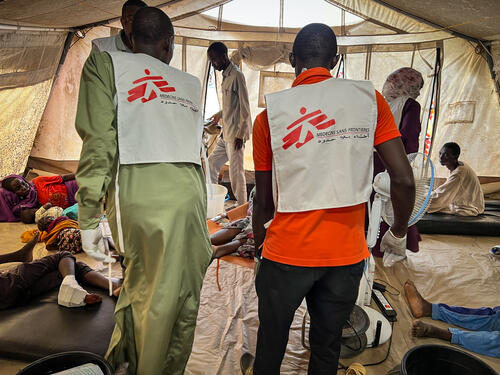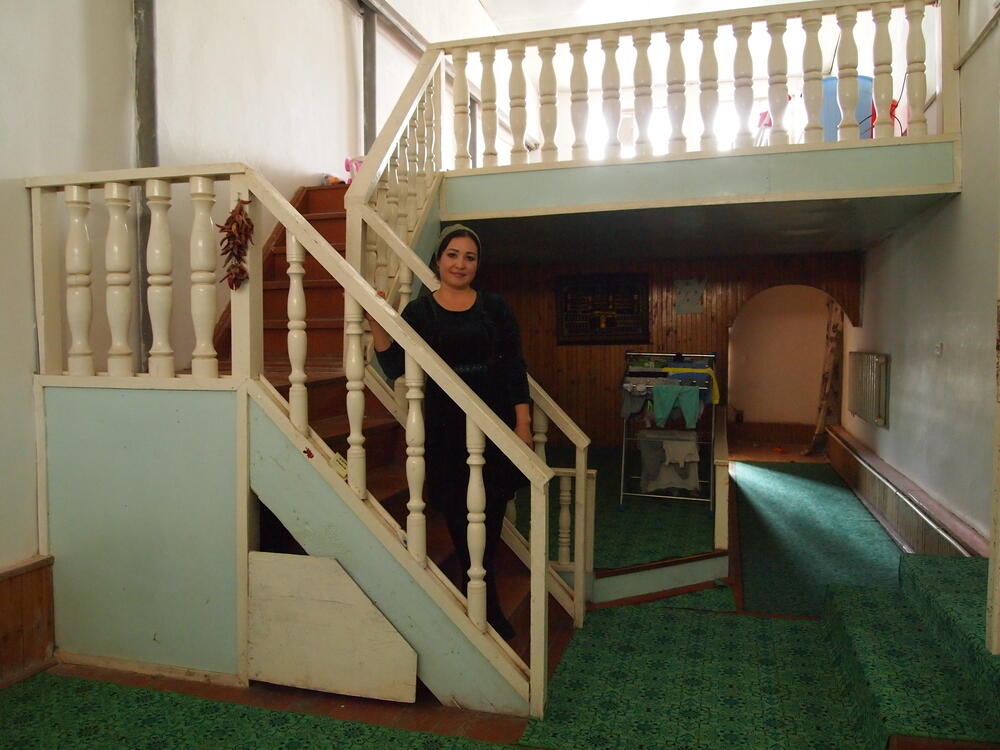Uzbekistan: New, shorter treatment brings hope for TB patient Dilaram
Dilaram, 34, couldn’t believe it when she was diagnosed with drug-resistant tuberculosis (DR-TB). But as one of the first recipients of a new, shorter treatment spearheaded by Médecins Sans Frontières / Doctors Without Borders (MSF), she was able to get back to work and her children.
"As a surgical nurse, I used to get medical check-ups every six months. During one of them, a radiologist noticed changes in my lungs.
They sent me to have an X-ray, and TB was detected. It was a real stress – to learn that I had TB. I knew what kind of disease it was.
And I did not understand how and when I could get infected being a healthcare professional myself.
I just could not believe it and kept asking myself: Why did I not have any symptoms? I was crying and crying. When I got sick, my elder daughter was four and my younger was two years old. My husband supported me.
After my diagnosis was confirmed, I informed my supervisors in the hospital. Unexpectedly they started to blame me for cheating on the previous medical checkup.

Our work saves lives
They said that I bought the medical clearance. Although I got further tests on my own initiative, there was a big discussion about my case at the team medical meeting. My name was not mentioned, but it still felt horrible.
It is all in the past, and it makes no sense to recall it now… But it was a difficult time for me.
Receiving a new treatment
In the clinic, the doctor told me that there was a new treatment course that I might be able to get as part of a clinical trial called TB PRACTECAL.
They told me all about it and said that I might be able to work as I used to work before, so I was really eager to get this six-month regimen to complete my treatment as soon as possible.
Even though I was one of the first patients enrolled in the TB PRACTECAL clinical trial in Nukus, I believed that these new medications would be helpful. I took my pills with positive passion, and I did not face any side effects, even stomachache.
When I was in the hospital, some patients were afraid to start their treatment, and I shared my own experience with them in order to support them.
I always said to others that these new medicines were good and we needed to take fewer quantities of the pills compared to other TB patients. And I never felt ashamed of my disease.
Getting back to work
I had to stop working while I was on treatment. After it was finished, I wanted to get back to work.
All my test results were good, but I supposed that it might still be a problem to be accepted back to my working place in the hospital.
So, I went directly to the hospital director – there was a new one, he came from Tashkent shortly before. I asked whether they would like to transfer me to any other department where I would not work in such direct contact with patients as in the Surgery Ward.
I told him that I had suffered from this disease, but that my test results were good. I said that I was ready to change my job if it was necessary, but the hospital director replied: “Why? Your test results are good, you can work in the same ward”.
After my recovery, I wanted to have another child. I wanted to get pregnant, but after the disease I was afraid.
At group psychological support sessions I heard stories about women who got sick again after getting pregnant. I asked my doctors if it was safe for me to have another child. They said I was doing well, and that I could get pregnant.
MSF and TB PRACTECAL
TB PRACTECAL is a cutting-edge phase II/III clinical research project to find short, tolerable and effective treatments for people with drug-resistant tuberculosis (DR-TB).
Seizing upon the opportunity of the first new TB drugs in half a century, MSF has partnered with the London School of Hygiene and Tropical Medicine and other global leaders in medical research, as well as ministries of health in affected countries, to take action.
Together, they share one big goal: to save the lives of hundreds of thousands of people with DR-TB and close the deadly treatment gap that is fuelling the global crisis.
